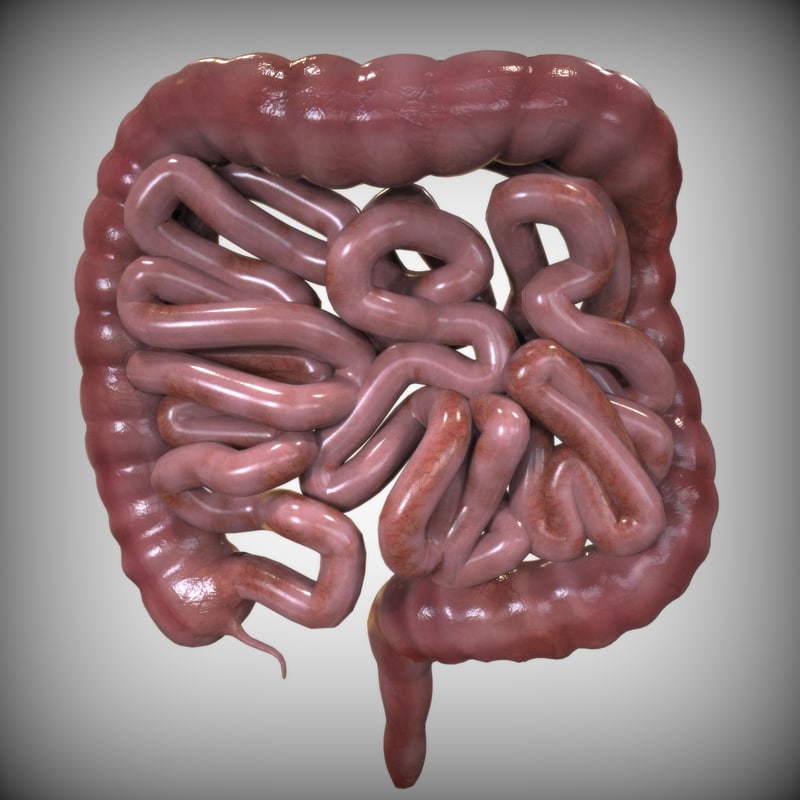How Long Are The Human Intestines
How Long Are The Human Intestines - Let me tell you, y'all, the human intestines are longggg. And I ain't talking 'bout just a little bit long, I'm talking miles long. And don't even get me started on how important they are for our bodies - it's crazy! So, let's take a look at these images and learn a thing or two about our intestines.
Length Of Intestines
Did You Know Your Intestines Are Over 20 Feet Long?
Yup, that's right. The length of your intestines, both the small and large intestines combined, is over 20 feet long. Can you even imagine that? To be exact, the small intestine alone measures about 20 feet long and the large intestine is about 5 feet long. That's a lot of intestines in one body, y'all.

Large Intestine: Functions, Disorders and Conditions - Scientific
What Does The Large Intestine Do?
The large intestine, also known as the colon, is a very important part of our digestive system. Its main job is to absorb water from the remaining indigestible food matter, solidifying it into feces. The feces are then eliminated from our bodies through the anus. But, that's not all it does - it also helps to absorb vitamins produced by gut bacteria, as well as to process any remaining nutrients.
3ds intestine
What Does The Small Intestine Do?
The small intestine may be small in size, but it's a very important part of our body. Its main job is to digest and absorb nutrients from the food we eat. The walls of the small intestine are lined with tiny finger-like projections, called villi, which increase the surface area for absorption. So, the next time you eat, remember to thank your small intestine for doing all the hard work.

The Small Intestine | Complete Anatomy
What Can Go Wrong With Your Small Intestine?
Although the small intestine is crucial for digestion and absorption of nutrients, it's also susceptible to a number of disorders and diseases. Some common issues include celiac disease, Crohn's disease, and irritable bowel syndrome. Paying attention to your body and speaking with your doctor about any concerns is always a good idea when it comes to your health.

How Long Are Your Intestines? Length of Small and Large Intestines
Do You Know The Exact Length Of Your Intestines?
While we know that the small intestine is about 20 feet long and the large intestine is about 5 feet long, the exact length can vary from person to person depending on factors such as age, gender, and diet. So, to answer the question - we don't know the exact length of our intestines, but one thing is for sure - they're definitely more than a few feet long!

Now that we've learned a thing or two about our intestines, let's talk about some tips and ideas for keeping them healthy.
Tips For A Healthy Digestive System
Drink Lots Of Water
Drinking plenty of water helps to keep your digestive system running smoothly. It helps to soften stools and prevent constipation - which can be a real pain in the you-know-what. Aim for at least 8 glasses of water a day, y'all.
Eat A Balanced Diet
Eating a balanced diet with plenty of fruits, vegetables, whole grains, and lean protein is essential for a healthy digestive system. These foods provide fiber, which promotes regular bowel movements and helps to keep things moving through your intestines. Plus, a well-fed gut is a happy gut.
Stay Active
Being active not only helps to keep your body in shape, but it also helps to keep your digestive system healthy. Exercise helps to promote bowel movements and increase blood flow to the intestines, which aids in digestion. Even a simple walk around the block can do wonders for your gut health.
Don't Smoke
Smoking is bad for your overall health, and it can wreak havoc on your digestive system too. Smoking increases the risk of digestive disorders, such as ulcers and gastritis. Plus, it can weaken the muscles in your digestive system, leading to constipation and other issues. So, if you needed another reason to quit smoking - here it is.
How To Improve Your Gut Health
Probiotics
Probiotics are live bacteria and yeasts that are good for your gut health. They help to balance the good and bad bacteria in your digestive system, which can help to improve digestion and prevent digestive disorders. Probiotics can be found in foods such as yogurt, kefir, and sauerkraut, or taken as a supplement.
Reduce Stress
Stress can wreak havoc on your digestive system, causing issues such as bloating, constipation, and diarrhea. Practicing stress-reducing activities, such as meditation or yoga, can help to alleviate these symptoms and improve gut health.
Increase Fiber Intake
As mentioned before, fiber is essential for a healthy digestive system. Increasing your fiber intake through foods such as fruits, vegetables, and whole grains can help to promote regular bowel movements and prevent constipation. Just make sure to increase your fiber intake gradually to avoid any unwanted digestive symptoms.
And there you have it, y'all - a little bit of knowledge about our intestines, and some tips and ideas for keeping them healthy. It may not be the most glamorous topic, but it's definitely an important one. Let's take care of our guts, and they'll take care of us in return.
Read more articles about How Long Are The Human Intestines
Post a Comment for "How Long Are The Human Intestines"